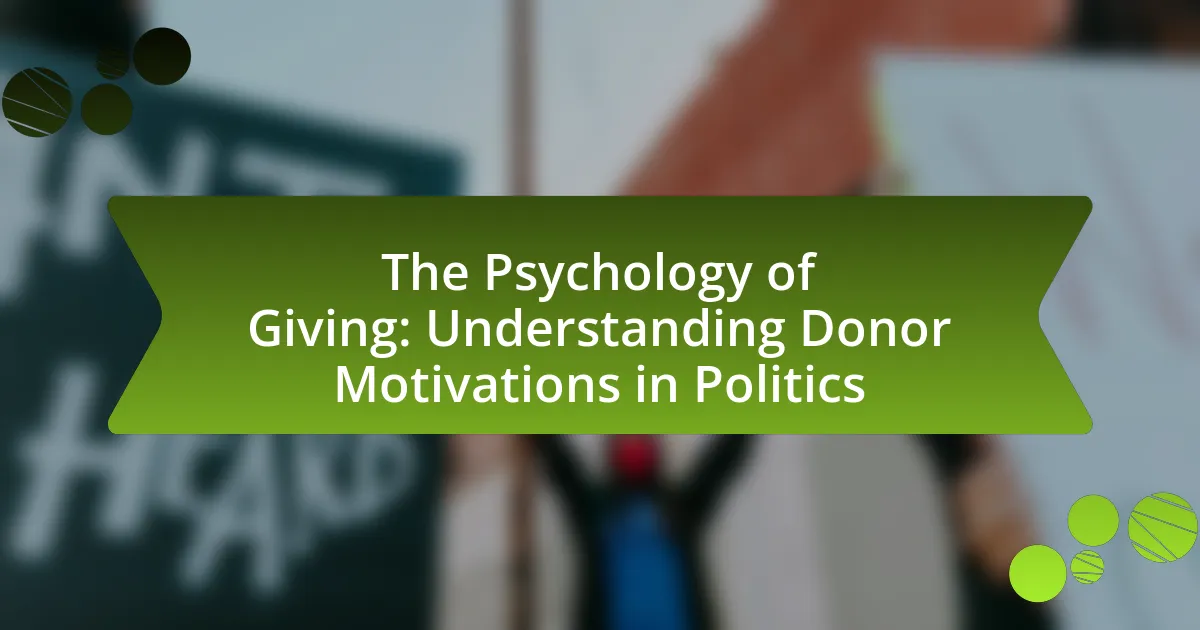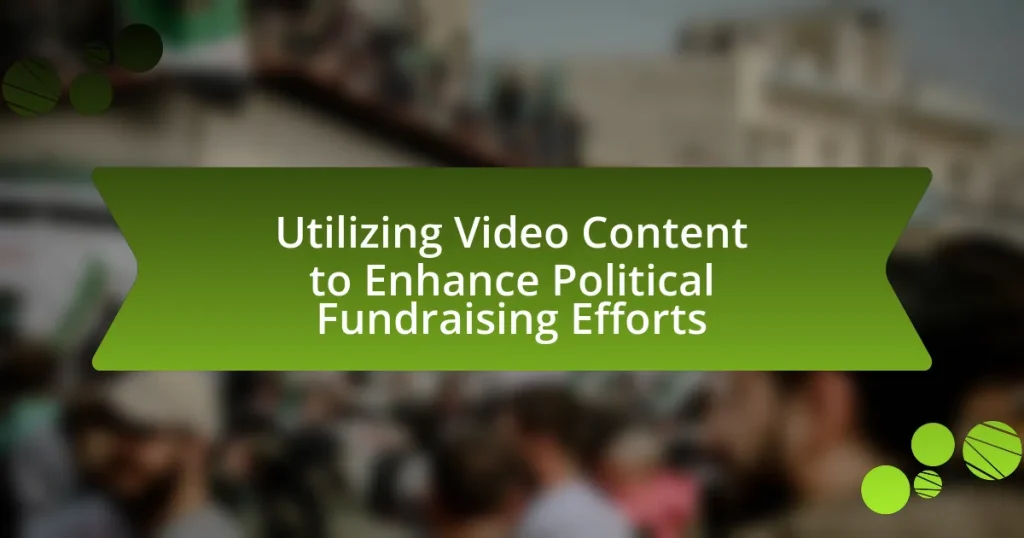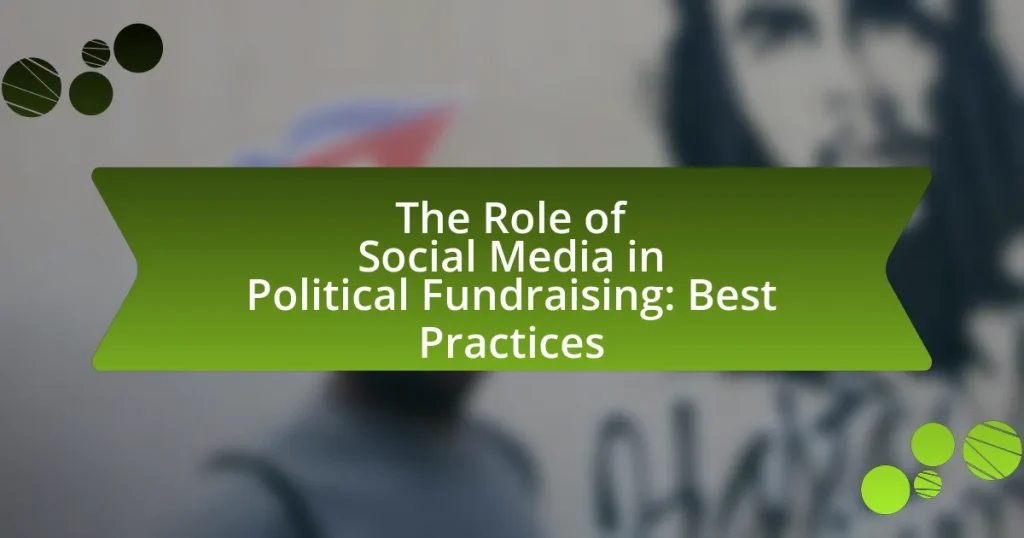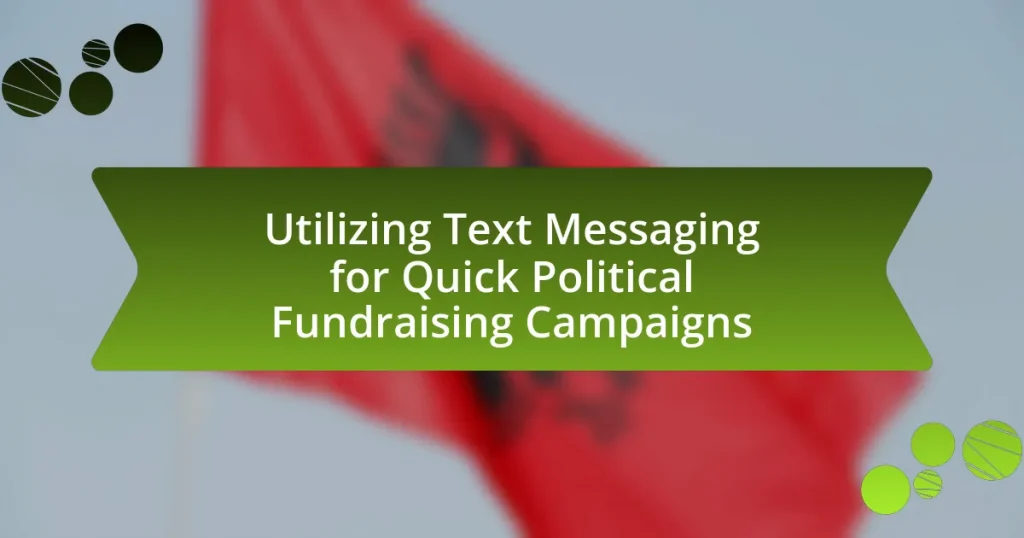The article explores the psychology of giving in politics, focusing on the motivations and emotional factors that drive individuals to donate to political campaigns and causes. It examines how personal values, social identity, and the desire for social change influence donor behavior, alongside the impact of psychological theories such as Altruism Theory and Social Exchange Theory. Additionally, the article discusses the role of emotions, perceived efficacy, and external factors like social networks and public opinion in shaping donor motivations. By understanding these dynamics, political organizations can enhance their fundraising strategies and engage donors more effectively.
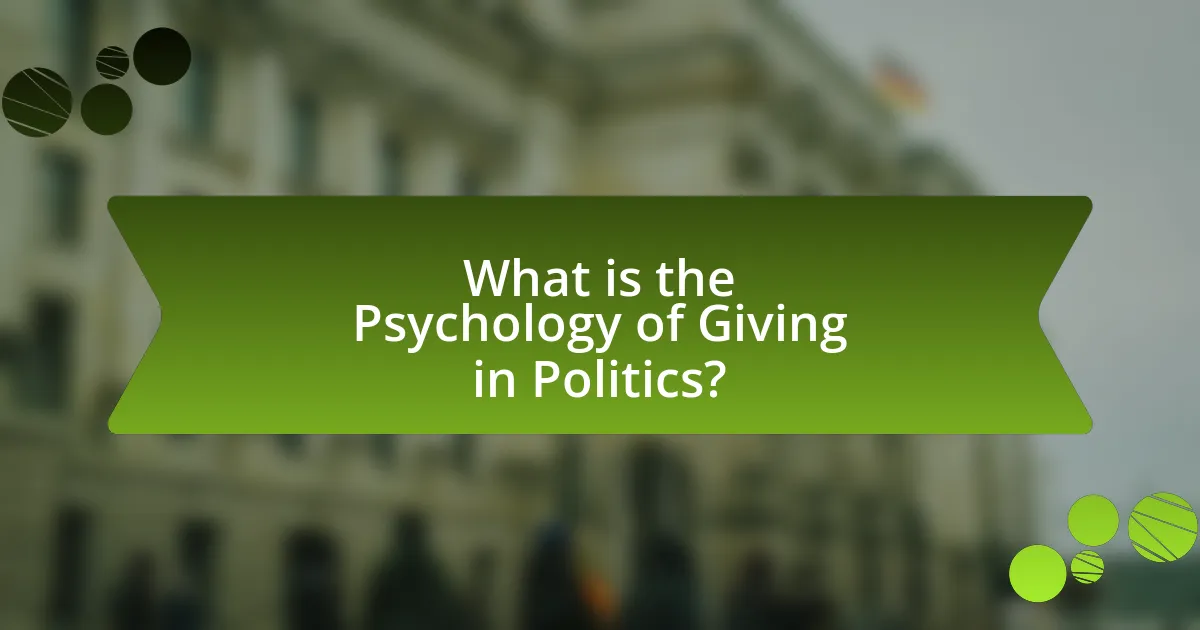
What is the Psychology of Giving in Politics?
The psychology of giving in politics refers to the underlying motivations and emotional factors that drive individuals to donate to political campaigns or causes. Research indicates that donors are often influenced by a combination of personal values, social identity, and the desire for social change. For instance, studies show that individuals are more likely to contribute when they feel a strong connection to a candidate’s values or when they perceive their donation as a means to effectuate change in their community or society at large. Additionally, social norms and peer influence play significant roles; people are motivated to give when they see others doing so, reinforcing a sense of belonging and collective action.
How do psychological factors influence donor behavior in political contexts?
Psychological factors significantly influence donor behavior in political contexts by shaping motivations, perceptions, and emotional responses. For instance, social identity theory suggests that individuals are more likely to donate to political causes that align with their personal or group identities, as they seek to reinforce their belongingness and social connections. Additionally, the principle of reciprocity indicates that donors may feel compelled to give when they perceive a personal connection or obligation to a candidate or cause, often driven by prior interactions or favors received. Research by Bekkers and Wiepking (2011) highlights that emotions such as empathy and moral obligation can also enhance the likelihood of donations, as individuals respond to the perceived needs of others. These psychological dynamics create a complex interplay that ultimately drives donor behavior in political settings.
What are the key psychological theories related to charitable giving?
Key psychological theories related to charitable giving include the Altruism Theory, which posits that individuals give to help others without expecting anything in return, and the Social Exchange Theory, which suggests that people give based on perceived benefits and costs associated with the act of giving. Additionally, the Empathy-Altruism Hypothesis indicates that feelings of empathy towards others can motivate charitable actions. Research supports these theories; for instance, studies show that individuals who feel empathy are more likely to donate to causes that resonate with their emotional responses.
How do emotions play a role in political donations?
Emotions significantly influence political donations by driving individuals to contribute based on feelings of empathy, anger, or hope. Research indicates that emotional appeals in political campaigns can enhance donor engagement; for instance, a study published in the journal “Political Psychology” by Campbell and Tuch (2016) found that emotionally charged messages increased the likelihood of donations. Furthermore, emotions like fear and enthusiasm can create a sense of urgency, prompting immediate financial support for candidates or causes perceived as aligned with the donor’s values. This emotional connection often leads to higher donation amounts and increased frequency of contributions, demonstrating that emotions are a critical factor in the decision-making process for political donations.
Why do individuals choose to donate to political causes?
Individuals choose to donate to political causes primarily to influence political outcomes and support candidates or issues that align with their values. This motivation is often driven by a desire to promote social change, advocate for specific policies, or ensure representation of their interests. Research indicates that emotional factors, such as a sense of civic duty or personal connection to a cause, significantly impact donation behavior. For instance, a study by the Pew Research Center found that 45% of donors cited a strong belief in the candidate’s vision as a key reason for their financial support. Additionally, social identity and group affiliation can enhance the likelihood of donations, as individuals often contribute to causes that reflect their community or social networks.
What personal values drive political donations?
Personal values that drive political donations include a commitment to social justice, a desire for community improvement, and alignment with specific political ideologies. Individuals often donate to support candidates or causes that reflect their beliefs about equality, environmental sustainability, or economic policies. For instance, research by the Pew Research Center indicates that 70% of donors cite shared values and beliefs as a primary motivation for their contributions. This alignment fosters a sense of belonging and purpose, reinforcing the connection between personal values and political engagement.
How does social identity impact donor motivations?
Social identity significantly impacts donor motivations by influencing individuals’ perceptions of belonging and their desire to support causes that resonate with their group affiliations. Research indicates that donors are more likely to contribute to political campaigns or charitable organizations that align with their social identities, such as ethnicity, religion, or political affiliation. For instance, a study published in the Journal of Politics found that individuals are motivated to donate when they perceive their contributions as reinforcing their social identity and enhancing their group’s status. This connection between social identity and donor behavior highlights the importance of group dynamics in shaping philanthropic decisions.
What role does perceived efficacy play in donor decisions?
Perceived efficacy significantly influences donor decisions by shaping their belief in the effectiveness of their contributions. When donors believe that their financial support will lead to tangible outcomes, they are more likely to contribute. Research indicates that donors are motivated by the expectation that their donations will create a positive impact, as evidenced by a study published in the Journal of Political Marketing, which found that perceived efficacy correlates with increased donation amounts and frequency. This relationship underscores the importance of communicating the potential impact of donations to enhance donor engagement and commitment.
How do donors assess the effectiveness of their contributions?
Donors assess the effectiveness of their contributions primarily through measurable outcomes and impact evaluations. They often look for specific metrics such as the number of beneficiaries served, the success rate of funded programs, and the overall return on investment in terms of social change. For instance, a study by the Stanford Social Innovation Review highlights that 70% of donors prioritize evidence of impact when deciding to continue funding an organization. Additionally, donors may utilize third-party evaluations and reports to verify the effectiveness of their contributions, ensuring that their financial support leads to tangible results in the political landscape.
What factors contribute to a donor’s belief in political change?
A donor’s belief in political change is primarily influenced by their personal values, perceived efficacy, and social identity. Personal values, such as a commitment to social justice or environmental sustainability, drive donors to support causes aligned with their beliefs. Perceived efficacy refers to the donor’s belief that their contributions can lead to tangible outcomes, which is often reinforced by success stories or data demonstrating the impact of previous donations. Social identity plays a crucial role as well; donors are more likely to contribute when they feel a connection to a community or movement that reflects their identity, as evidenced by studies showing that individuals are motivated to give when they see their peers participating in similar efforts.
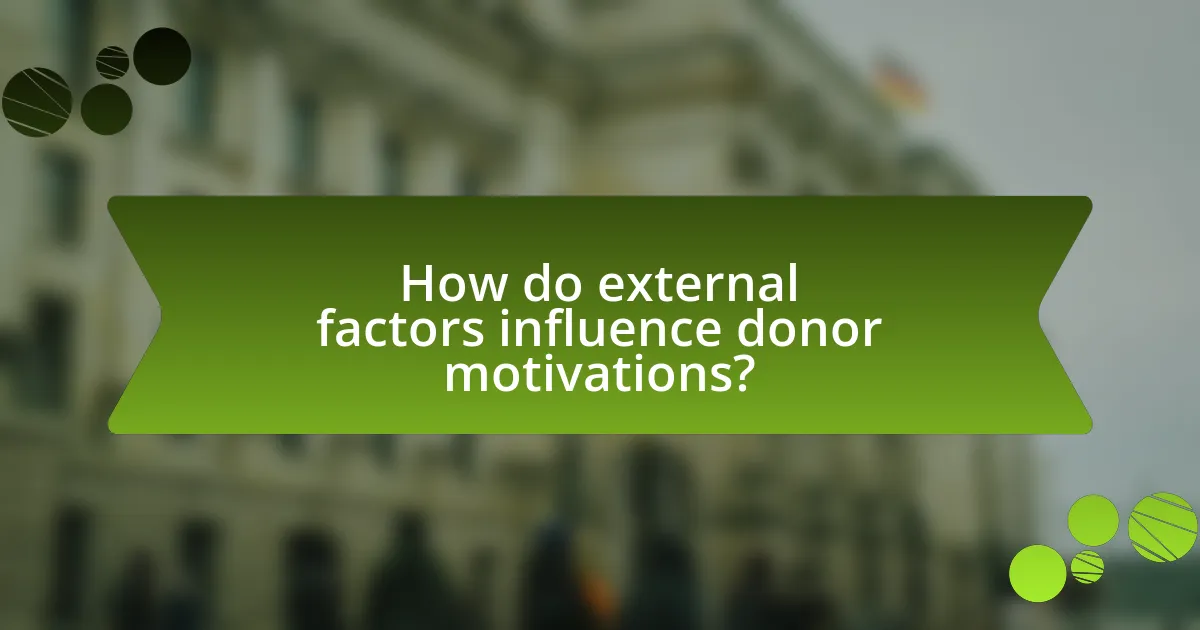
How do external factors influence donor motivations?
External factors significantly influence donor motivations by shaping perceptions, values, and social norms related to giving. For instance, economic conditions can affect an individual’s disposable income, thereby impacting their capacity to donate; during economic downturns, donations typically decline as individuals prioritize essential expenses. Additionally, social influences, such as peer behavior and community engagement, can motivate individuals to contribute, as seen in studies indicating that people are more likely to donate when they observe others doing so. Furthermore, media coverage of specific causes can elevate awareness and urgency, prompting increased donations; for example, high-profile disasters often lead to spikes in charitable giving. These external factors collectively create an environment that can either encourage or discourage philanthropic behavior.
What impact do social networks have on political giving?
Social networks significantly enhance political giving by facilitating connections between donors and political campaigns. These platforms enable individuals to share information about candidates and causes, which can lead to increased awareness and motivation to contribute financially. Research indicates that social media users are more likely to donate when they see their peers engaging in political giving, as social proof influences their decisions. For instance, a study by the Pew Research Center found that 69% of social media users reported being influenced by their friends’ political activities online, demonstrating the powerful role of social networks in shaping donor behavior.
How does peer influence affect individual donation behavior?
Peer influence significantly affects individual donation behavior by shaping perceptions of social norms and expectations regarding charitable giving. When individuals observe their peers donating, they are more likely to feel compelled to contribute themselves, as social proof reinforces the idea that giving is a valued behavior within their community. Research indicates that individuals are influenced by the donation behaviors of their friends and social networks, leading to increased likelihood of participation in charitable activities. For instance, a study published in the Journal of Economic Behavior & Organization found that individuals are more likely to donate when they see others in their social circle doing so, demonstrating the powerful role of peer dynamics in motivating financial contributions to causes.
What role does public opinion play in shaping donor motivations?
Public opinion significantly influences donor motivations by shaping perceptions of social norms and expectations regarding charitable giving. When public sentiment favors certain causes or organizations, potential donors are more likely to contribute, as they seek to align their actions with perceived societal values. Research indicates that individuals are motivated to give when they believe their contributions will be viewed positively by their peers, reinforcing the idea that social approval plays a critical role in philanthropic behavior. For instance, a study published in the Journal of Politics found that donors are more likely to support political candidates who align with popular public opinions, demonstrating the direct correlation between public sentiment and donor behavior.
How do political campaigns affect donor engagement?
Political campaigns significantly enhance donor engagement by creating a sense of urgency and emotional connection among potential contributors. Campaigns often utilize targeted messaging and outreach strategies that resonate with specific voter demographics, which in turn motivates individuals to contribute financially. For instance, a study by the Pew Research Center found that 60% of donors reported feeling more inclined to give when they perceive a candidate’s campaign as competitive or impactful. This competitive nature of campaigns fosters a belief that their contributions can directly influence electoral outcomes, thereby increasing their willingness to engage financially.
What strategies do campaigns use to attract donations?
Campaigns use targeted messaging, emotional appeals, and social proof to attract donations. Targeted messaging involves identifying and addressing the specific interests and values of potential donors, which increases the likelihood of engagement. Emotional appeals leverage storytelling to create a connection between the donor and the cause, often highlighting personal stories or urgent needs that resonate with the audience. Social proof, such as showcasing endorsements from influential figures or demonstrating community support, reinforces the legitimacy of the campaign and encourages others to contribute. Research indicates that campaigns employing these strategies can significantly increase donor engagement and contributions, as evidenced by studies showing that emotional narratives can boost donation rates by up to 30%.
How does campaign messaging influence donor decisions?
Campaign messaging significantly influences donor decisions by shaping perceptions and emotional responses toward a cause or candidate. Effective messaging can create a sense of urgency, highlight shared values, and establish a connection between the donor and the campaign’s mission. For instance, research by the Stanford Social Innovation Review indicates that emotionally charged narratives can increase donor engagement by up to 50%, demonstrating that storytelling in campaign messaging resonates more deeply with potential contributors. This emotional appeal, combined with clear calls to action, can lead to increased financial support, as donors feel more compelled to contribute when they identify with the campaign’s goals and values.
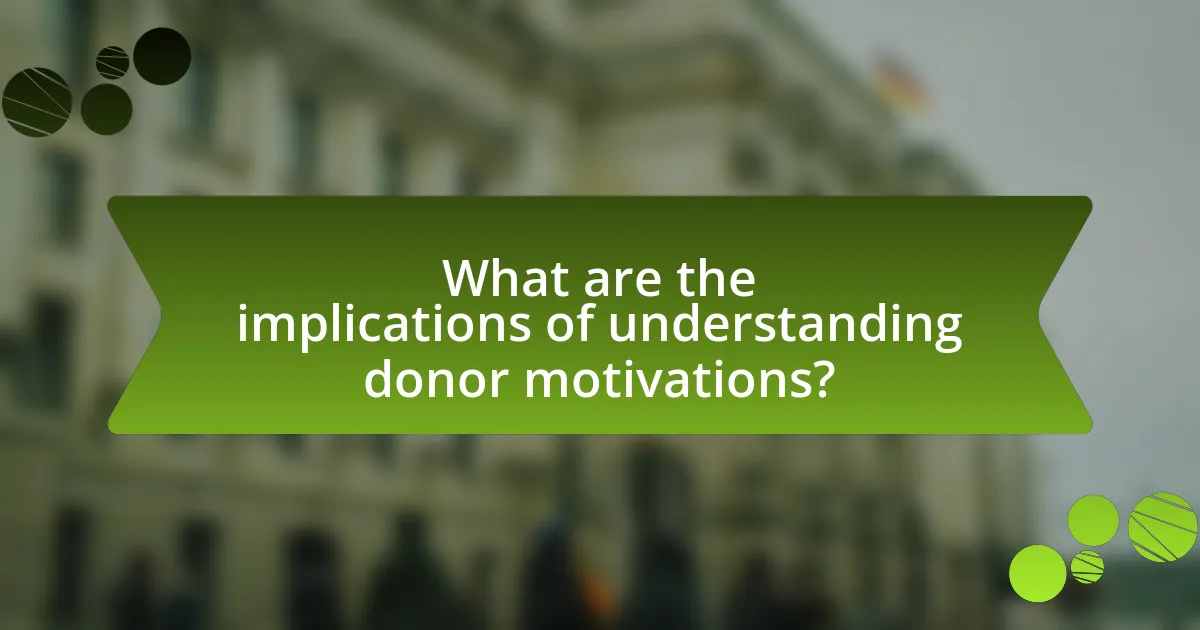
What are the implications of understanding donor motivations?
Understanding donor motivations has significant implications for political fundraising and campaign strategies. By comprehensively analyzing what drives donors to contribute, political organizations can tailor their messaging and outreach efforts to align with these motivations, thereby increasing the likelihood of securing donations. For instance, research indicates that emotional appeals, such as highlighting personal stories or community impact, can resonate more deeply with potential donors, leading to higher engagement and contributions. Furthermore, understanding motivations allows political entities to segment their donor base effectively, enabling targeted communication that addresses specific interests and values, ultimately enhancing donor retention and loyalty.
How can political organizations leverage donor psychology?
Political organizations can leverage donor psychology by understanding the motivations that drive individuals to contribute financially. By identifying key psychological factors such as social identity, personal values, and emotional engagement, organizations can tailor their messaging and outreach strategies to resonate with potential donors. For instance, research indicates that donors are more likely to give when they feel a sense of belonging to a cause or community, as highlighted in studies like “The Psychology of Charitable Giving” by Sargeant and Woodliffe. Additionally, utilizing storytelling that evokes emotional responses can significantly enhance donor engagement, as emotional appeals have been shown to increase the likelihood of donations. By strategically aligning their campaigns with these psychological insights, political organizations can effectively increase donor contributions and foster long-term relationships with supporters.
What best practices can enhance donor engagement in political fundraising?
Best practices that can enhance donor engagement in political fundraising include personalized communication, transparent reporting, and creating a sense of community among donors. Personalized communication, such as tailored messages that address individual donor interests, has been shown to increase donor retention rates by up to 50%. Transparent reporting on how funds are utilized fosters trust, as studies indicate that 85% of donors prefer organizations that provide clear financial accountability. Additionally, creating a sense of community through events or online platforms encourages ongoing engagement, as social connections can significantly boost donor loyalty and increase the likelihood of repeat contributions.
How can understanding donor motivations improve campaign strategies?
Understanding donor motivations can significantly enhance campaign strategies by allowing campaigns to tailor their messaging and outreach efforts to resonate with potential supporters. When campaigns analyze what drives donors—such as personal values, social influence, or emotional connections—they can create targeted appeals that align with these motivations. For instance, research indicates that donors are more likely to contribute when they feel a personal connection to the cause or see their peers supporting it. By leveraging this insight, campaigns can design strategies that emphasize community involvement and shared values, ultimately increasing donor engagement and contributions.
What challenges do organizations face in understanding donor motivations?
Organizations face significant challenges in understanding donor motivations due to the complexity of individual psychological factors and external influences. Donor motivations are often influenced by personal values, social pressures, and emotional connections, making it difficult for organizations to accurately gauge what drives contributions. Research indicates that motivations can vary widely among different demographics, with factors such as age, income, and political affiliation playing crucial roles. For instance, a study by the Indiana University Lilly Family School of Philanthropy found that motivations for giving can differ significantly between younger and older donors, complicating the development of targeted fundraising strategies. Additionally, organizations may struggle with the lack of transparent communication from donors about their motivations, leading to assumptions that may not reflect actual intentions. This multifaceted nature of donor motivations requires organizations to employ sophisticated data analysis and segmentation strategies to better understand and engage their donor base effectively.
How can organizations address the complexities of donor psychology?
Organizations can address the complexities of donor psychology by employing targeted communication strategies that resonate with donors’ motivations and values. Understanding that donors are influenced by emotional, social, and cognitive factors, organizations can segment their donor base and tailor messages that align with individual motivations, such as altruism, social recognition, or personal connection to a cause. Research indicates that personalized communication increases donor engagement; for instance, a study by the Indiana University Lilly Family School of Philanthropy found that personalized appeals can boost donation rates by up to 50%. By utilizing data analytics to assess donor behavior and preferences, organizations can refine their outreach efforts, ensuring that they effectively address the diverse psychological drivers behind giving.
What common misconceptions exist about donor motivations in politics?
Common misconceptions about donor motivations in politics include the belief that all donors are primarily motivated by self-interest or personal gain. In reality, many donors are driven by a genuine desire to support causes they believe in, such as social justice or environmental protection. Research indicates that emotional factors, such as empathy and a sense of civic duty, significantly influence donor behavior. For instance, a study by the Pew Research Center found that 70% of political donors cited a commitment to specific issues as their primary motivation, rather than personal benefits. This highlights the complexity of donor motivations, which often encompass a mix of altruism and strategic interests.
What practical tips can enhance donor engagement in political contexts?
To enhance donor engagement in political contexts, organizations should prioritize personalized communication strategies. Tailoring messages to reflect individual donor interests and values significantly increases engagement, as studies show that personalized outreach can lead to a 20% increase in donor retention rates. Additionally, providing transparent updates on how donations are utilized fosters trust and encourages ongoing support, with research indicating that 70% of donors prefer organizations that demonstrate accountability. Engaging donors through exclusive events or behind-the-scenes access to political campaigns also strengthens relationships, as these experiences create a sense of belonging and investment in the cause.
